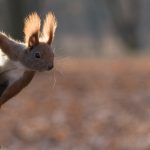
You might have noticed that you’re seeing a lot of environmentally-related posts around
the blogosphere today. Today is Blog Action Day, coordinating tens of thousands of bloggers
to create posts on one broad topic: the environment.
Why I support The WILD Foundation
My favorite environmental group is The WILD
Foundation up in Boulder. They have an interesting focus–both on the importance of
preserving wilderness that is essentially untouched by humanity, and by humanity’s need for that
wilderness. They take the need for unspoiled wilderness as a human right and human
necessity, and they always look for the human connection.
I recently made a donation to a project they’re supporting–Umzi Wethu, a pilot project
that benefits South African wilderness, AIDS orphans, and South Africa’s ecotourism
economy. Wilderness Foundation South
Africa (which WILD supports & fundraises for) took a smart idea and grew it into a
powerful little project that, with some funding and support, can be grown to create
tremendous real benefit to both people and wilderness.
Here’s the pair of problems that led to this solution. South Africa has a growing
population of children orphaned by AIDS. AIDS has taxed–and in fact, often broken–the
traditional African extended family system, as families bankrupt themselves trying to care
for the sick. Children living on the street, severely traumatized by losing both parents and
abandoned by society, fall prey to prostitution, street crime, and disease. Over a million
children in South Africa live in this desperate circumstance, and the number is expected to
climb to almost five million in the next 10 years.
At the same time, perhaps rather bizarrely, ecotourism is booming in South Africa.
According to WILD’s figures, tourism has grown 10% a year since 1994 and is the country’s
third largest industry. Ecotourism is a growing source of good skilled employment. But many
of the industry’s trained employees have also fallen to AIDS, and training is hard to
come by.
A remarkable solution
The Umzi Wethu project married these two problems to create a rather beautiful solution.
They train orphaned children for good jobs in game reserves and parks, paying more than
virtually any other work these young people could hope to attain.
The crux of what makes the program work is that the training includes five days every two
months in wilderness. (I was surprised to learn that black city children in Africa typically
never go to the wilderness. "Camping" is not the norm, and black South Africans rarely visit
the country’s reserves or parks. In fact, a child living in the U.S. is far more likely to
have ever seen a zebra or lion than a child living in Africa is.)
The children’s education is supported by training in long-term health, self esteem, and
personal growth. These things make life more enjoyable for those of us living comfortable,
materially rich lives in the West. They’re a stark matter of survival for a child struggling
to create a healthy adult identity without family or support. When WILD founder Vance Martin
spoke to a small group here in Denver about the program, he stressed the way that this
experience in wilderness heals psychic wounds that I might not have thought could be healed
at all.
There probably aren’t 4.7 million jobs in ecotourism, no matter how quickly the industry
grows. But the goal is to develop the Umzi Wethu approach of practical employment training
combined with nurturing and a profound healing experience in wilderness. The approach could,
conceivably, create real change in South Africa for any number of organizations and business
sectors. South Africa must solve this problem–they have tremendous resources, but this is a
monumental challenge to their still-new democracy.
Incidentally, WILD is a four-star charity, which means they’ve attained the highest
rating for organizational efficiency. (That means they’re putting the greatest possible
percentage of your donations into programs, rather than overhead.)
Donate a little, save the world
If you feel called to celebrate Blog Action Day with a donation to support the environment, and supporting human
populations is also important to you, I invite you to head on over to the WILD site, look over the list of projects, and make a
donation. Umzi Wethu is, amazingly, just one of the many powerful projects this tiny
nonprofit supports. WILD and its partners are the kind of organization that can make a real
difference in the health of this planet and its humans in the decades to come.
(You might easily miss the notice that Andrew Muir, WILD director and executive director of the Wilderness Foundation South Africa, was given an award in South Africa for environmentalist of the year. Here’s a PDF from WILD’s site that explains more.
(p.s., I liked this Blog Action Day post over at my beloved copyblogger on how to be a better butterfly. It’s easy to forget that small actions can have great consequences.)

Great post and kudos for the Blogosphere and Blog Action Day for stepping up to raise an awareness of environmental issues!
I started a nonprofit in Boulder three years ago called the Cottonwood Institute (we are now based in Denver) and we are inspiring students to change the world through an exciting blend of adventure, wilderness survival, and environmental service-learning.
Thanks for letting me know about the WILD Foundation, I had not previously heard of them. You may be interested in a website called Razoo: http://beta.razoo.com Think of it as a Facebook for changing the world.
Livin’ the Dream,
Ford Church, M. A., Founder and Executive Director
Cottonwood Institute
http://www.cottonwoodinstitute.org